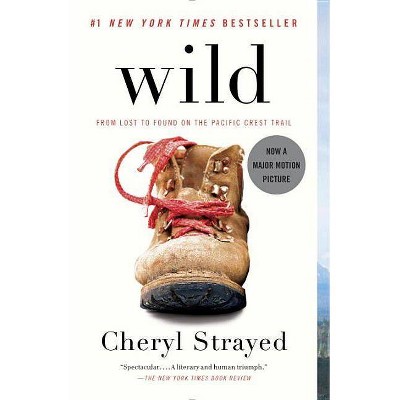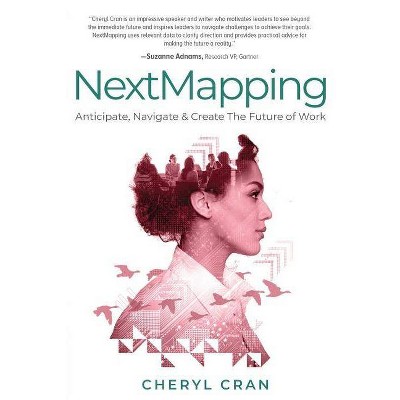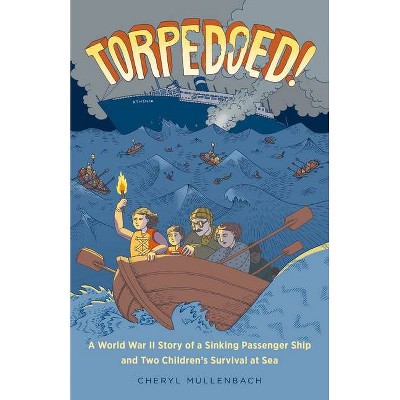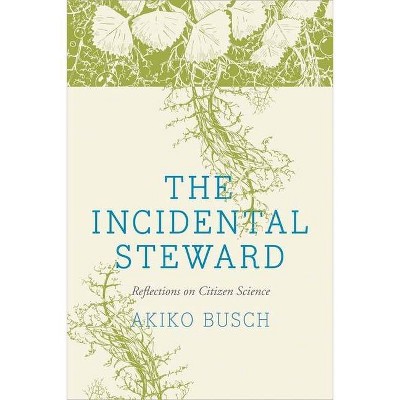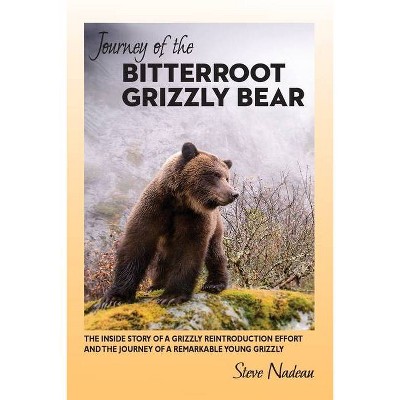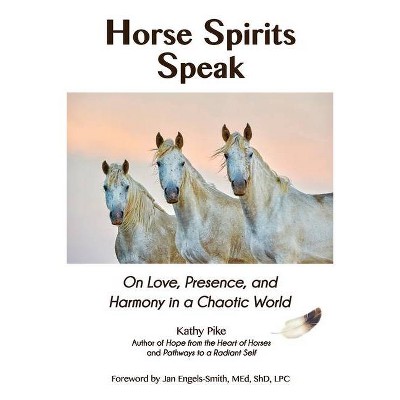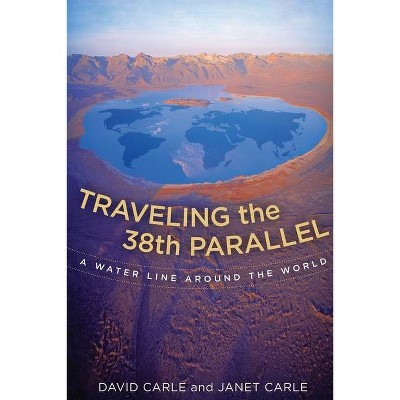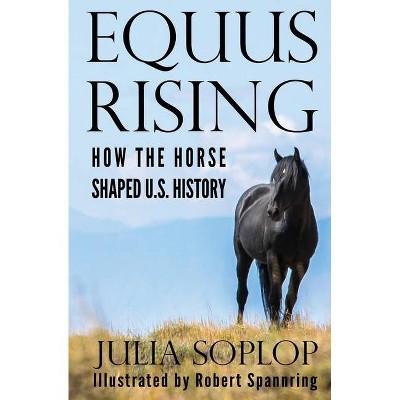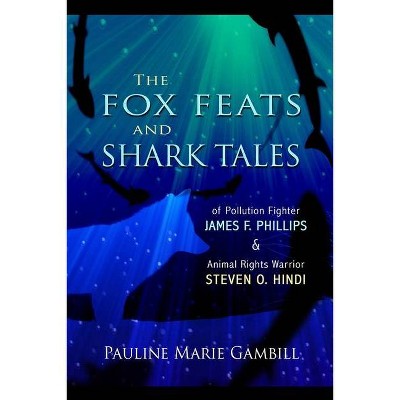Takaya - by Cheryl Alexander (Paperback)
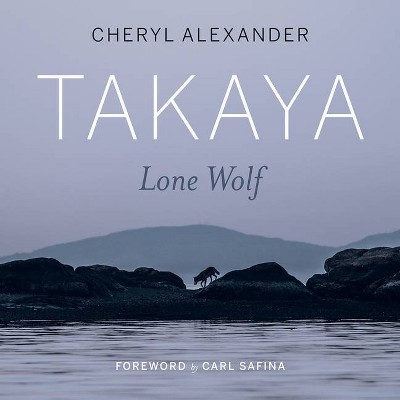
Similar Products
Products of same category from the store
AllProduct info
<p/><br></br><p><b> About the Book </b></p></br></br><b>An enchanting and evocative look at the unique relationship between a solitary, island-dwelling wolf and a renowned wildlife photographer.</b><p/><br></br><p><b> Book Synopsis </b></p></br></br><p><b>I hope that this book will help create a better and more informed relationship between humans and wolves."<br><b>--Jane Goodall</b></p><p><i>Takaya: Lone Wolf</i> is a beautiful chronicle of photographer and author Cheryl Alexander's relationship with a solo wild wolf living on a series of uninhabited islands in British Columbia.<br><b>--Barbara J. Moritsch, author of <i>Wolf Time</i></b></p><p><b><i>An enchanting and evocative look at the unique relationship between a solitary, island-dwelling wolf and a renowned wildlife photographer.</i></b></p></b><p>A lone wild wolf lives on a small group of uninhabited islands in British Columbia's Salish Sea, surrounded by freighter, oil tanker and other boat traffic and in close proximity to a large urban area. His name is Takaya, which is the Coast Salish First Nations people's word for wolf.</p><p>Cheryl Alexander studied and documented this unique wolf for years, unravelling the many mysteries surrounding his life. Her documentation of Takaya's journey, his life on the islands and the development of their deep connection is presented alongside a stunning collection of her photography.</p><p>Through journal entries, interviews, and a stunning collection of photography, <i>Takaya: Lone Wolf</i> addresses a number of profound questions and tells a story that is certain to inspire, enlighten, and touch the heart. It is the story of a wild animal, alone yet at peace.</p><p/><br></br><p><b> Review Quotes </b></p></br></br><br><b>Praise for <i>Takaya: Lone Wolf</i></b>: </p><p>"The story of Takaya and Cheryl reminds me of my long ago relationship with chimpanzee David Greybeard. It is only if you observe a complex animal over time, and with an open mind and heart that you can get a true understanding of the sentience of that animal, his or her being-ness. Cheryl exemplifies this approach - she is not afraid to become emotionally involved. And she knows how to tell a story that can be understood and enjoyed by anyone. I hope that this book will help create a better and more informed relationship between humans and wolves."<br><b>--Jane Goodall, PhD, DBE; Founder of the Jane Goodall Institute & UN Messenger of Peace</b></p> <p><i>Takaya: Lone Wolf</i> is a beautiful chronicle of photographer and author Cheryl Alexander's relationship with a solo wild wolf living on a series of uninhabited islands in British Columbia. Much like renowned primatologist, Dr. Jane Goodall, Alexander gains in-depth knowledge and understanding of Takaya through her direct observations made over a number of years. She recounts, through stories and her brilliant photographs, details of the wolf's daily life and activities that would otherwise be unavailable to most humans. Through the author's eyes, we spend time with Takaya as he hunts, feeds, patrols his territory, and relaxes in the sun, surveying his domain. Alexander provides her readers with details of the nature of Takaya's home, including both marine and terrestrial habitats and species. <i>Takaya</i>, however, is not just a story of a woman observing a wolf. In her narrative, Alexander underscores the importance and incredible value of individual wild animals, and how much they can teach us. She also, perhaps most importantly, issues a clarion call to protect wild nature--to protect and defend wolves and all other wildlife, and to protect the land, the habitat on which they depend.<br><b>--Barbara J. Moritsch, Ecologist and Author of <i>Wolf Time</i> and <i>The Soul of Yosemite: Finding, Defending, and Saving the Valley's Sacred Wild Nature</i></b></p> <p>"The relationship between Takaya and Cheryl Alexander, like Eastern mysticism, is beyond words. Call it gestalt, instinct and sixth sense. It's how they communicated so often. One wolf and one human that each represent two highly social and similar species. Tayaka knew Cheryl's boat, voice, look and smell, and was often wary of who she brought with her to the islands. Likewise, Cheryl knew his habits, his patterns, and could often predict his behavior. Being a scientist, I often pondered how humans and wild canids got to know each other long, long ago. It is now believed that wolves, originally assumed to be domesticated by us, possibly chose us to become domesticated. Maybe it was both ways, because being with Cheryl and seeing first-hand her keen sense of observation and communication on the islands where Takaya lived, provides the mechanism of how it likely occurred thousands of years ago. Having studied coyotes, wolves and foxes for 36 years, I can say without hesitation that the evidence of Takaya forming social communication bonds with Cheryl is overwhelming. It is through this seemingly mystical communication, comes a story. A story like no other between a human and a wolf, a species from which all our dogs evolved. It's a story beyond the five senses, beyond known science, and it reaches to the very foundation of conservation: a Hippocratic oath of caring enough to understand, respect and coexist."<br><b>--Dr. Robert Crabtree, founder and chief scientist of Yellowstone Ecological Research Center, Bozeman, Montana</b></p> <p>A heart-searing book that draws us into feeling with and for Tayaka. Aren't we all stuck on an island, determined to survive alone, or transferred away from our home? The magnificent photos and insights inspire us to hang on too, to believe that we too will persevere. The wildness of the natural world is in us too."<br><b>--Darcia Narvaez, University of Notre Dame, author of <i>Neurobiology and the Development of Human Morality: Evolution, Culture and Wisdom</i></b></p> <p>"There can be few more poignant stories than that of Takaya, the lone wolf. Having hurt no one in his life, he was senselessly killed by hunters - legal on Vancouver Island, to which he had been returned after seven years of solitary life on islands off the coast at Victoria. This beautiful wolf is light years from the fear-instilling characterisation of the wolf in the Red Riding Hood fable. I think we owe a huge debt of gratitude to Cheryl Alexander. She shines a light of hope in our increasingly troubled world which shows you don't need to be a scientist to watch and learn, and care about other creatures. We just need to be a little humble and respectful. And grateful."<br><b>--Virginia McKenna, OBE, co-founder and trustee of Born Free</b></p> <p>"The true gift of someone like Cheryl is that they're willing to be that fly on the wall that spends days, weeks, months, years just observing, non-intrusively from a kayak, from a zodiac, from the water, watching a wolf be a wolf and do wild wolf things. Cheryl has been a voice for Takaya, not only to protect him but to do it in service to him and then carry on to keep his legacy alive, so he didn't die in vain. We have fallen in love with this animal through Cheryl's eyes, and now we all get to be voices for all wolves that have been displaced by humans, shot by humans, villainized by humans and ultimately persecuted by humans."<br><b>--Paul Nicklen, photographer, filmmaker, marine biologist, author, National Geographic Fellow, and co-founder of SeaLegacy</b></p> <p>"I first met Cheryl Alexander when she was documenting the life of Takaya, who lived not far from her abode on the mainland of Vancouver Island. Although Takaya remained elusive when Cheryl and I visited his home territory, I distinctly remember feeling his presence and being struck with the realization of how unique his story was--and it remains so today. This is not only a tale of one courageous woman's dedication to this lone wolf--whose very existence baffled scientists--but also of Takaya's plight and his precarious life so close to human civilization and in a province generally hostile to wolves and all apex predators. Cheryl weaves together her stunning photography, personal stories, poetry and more to illuminate Takaya's remarkable and ultimately tragic life story for all to both celebrate and lament. My hope is that Takaya's death was not in vain, but rather that it will serve to hasten the end of trophy hunting and trapping of wolves in British Columbia and beyond."<br><b>--Camilla H. Fox, founder and executive director of Project Coyote and co-author of <i>Coyotes in Our Midst</i></b></p> <p>"Cheryl has done very valuable work in hours, days and more spent learning about a particular wolf. Because of their relatively high intelligence and social connectivity, wolves have much in common with humans. This helps to tear down the unfortunate old myth of the "big bad wolf". Her book is an important contribution to this topic."<br><b>--Robert Bateman, artist and naturalist</b></p> <p>"At a time when government-supported persecution of Canadian wolves reached new heights, Takaya arrived on the front doorstep of British Columbia's capital city as if an ambassador sent to remind us of the true nature of wolves. Cheryl Alexander's beautiful images and observations of Takaya's extraordinary island life provides the most heartfelt and undeniable proof of our potential to rekindle a relationship between our species that has been lost for far too long. We owe so much to Cheryl for not letting us forget Takaya, and this book should be a must read for anyone who doubts that humans and wolves can and should co-exist."<br><b>--Ian McAllister, executive director of Pacific Wild</b></p> <p>"A powerful and moving portrait of Takaya, a unique wolf that left a deep print on the hearts of British Columbians. Takaya's story breaks the mould on how we understand these animals, and stands as a symbol for the great pressures we exert on wolves across Canada."<br><b>--Harley Rustad, journalist, editor; author of <i>Big Lonely Doug: The Story of One of Canada's Last Great Trees</i></b></p> <p>"Cheryl got to know Takaya better than anyone. They had trust in each other. Often, he'd approach her. There was, for them, no fear. And thanks to Cheryl, Takaya's life has become a gift to us. It would be nice if we decide to return Takaya's favor."<br><b>-Carl Safina, author of <i>Becoming Wild</i> and <i>Beyond Words</i></b></p> <p>"Astounding, moving and above all beautiful, this remarkable story inspires all of us to persevere and to value the world we live in."<br><b>--W. Bruce Cameron, NYT #1 bestselling author</b></p> <p>"<i>Takaya: Lone Wolf</i> tells the remarkable story of a wolf who, instead of mingling with other wolves, decided to observe humans by settling alone on an island right in front of British Columbia's busy capital and ended up having a one-to-one dialogue with a photographer visiting this island. A unique observational approach to understanding wolf ecology as well as a truly fascinating adventure, spiced up with numerous seal snacks."<br><b>--Guillaume Chapron, PhD</b></p> <p>"It's interesting when the fates of a wild animal and a person come together. Cheryl Alexander, although working in the field of environmental decision-making and education, was not a wolf person or a wolf expert. However, after a chance encounter with a lone wolf that had migrated to the islands near her home, she got really involved in his life. She told me a story of seeing Takaya smell and then piss on the eggs of a goose, rather than eat them immediately. She wondered why. Over the next few weeks she observed that Takaya returned many times and ate only a couple of the eggs each time he visited the nest. She wondered if he was perhaps waiting for them to hatch, or maybe knew the goose might lay more eggs if he left some. Observations like this are only possibly when a person spends time and looks at an animal with real empathy. Cheryl didn't just want to understand and investigate Takaya; she became committed to protecting and advocating for him. When his life was threatened by potential government intervention, she advocated for him and for greater public education about co-existence with carnivores. I am very grateful for the protection Cheryl offered and for the increased understanding of wolves that her observations have brought."<br><b>--Cristina Goettsch Mittermeier, photographer, biologist and author; founder, former president and a fellow of the International League of Conservation Photographers</b></p> <p>"<i>Takaya</i> the film was great. Takaya the book is even better. Never before has the life of a lone wolf been so deeply, so richly and so lovingly documented. Cheryl Alexander was drawn into an eight-year-long quest to understand how the wolf, Takaya, was able to survive, isolated from others of his kind, on a small collection of islands off Victoria, British Columbia, Canada. With patience, persistence and reverence, she forged a relationship with Takaya that allowed her one of the best glimpses into a lone wolf's life we've ever had. I was reminded of Jane Goodall's and Diane Fossi's classic work with chimpanzees and gorillas, respectively, where researcher and subject learn to respect one another as equals. Indeed, so much of the charm of this story is the impact of Takaya on Cheryl: wolf as Zen master. Along the way, Cheryl amassed a collection of stunning photographs that richly illustrate Takaya's life, and seem to not only give us a glimpse into his day-to-day routine, but also give us a sense of his soul. It was a brief eye-to-eye encounter that drew Cheryl into her quest early on, and the power of his glance comes through in her photos."<br><b>--Fred Harrington, professor emeritus, Mount Saint Vincent University</b></p> <p>"An inspiring and beautifully rendered chronicle of a quest to unfurl the mysteries of a social animal that chose to forge its own path alone. Takaya's solitary journey brought him into magical communion with Cheryl and now with all of us through this colourful and compassionate portrait that will forever change the way we view these majestic creatures."<br><b>--John Zada, writer, photographer and journalist</b></p> <p>"The emptiness in us might be a product of having isolated ourselves from our fellow creatures, the non-human ones - from treating all of Nature as objects and commodities and resources to be managed rather than as neighbours. Cheryl Alexander offers up an antidote to that coldly analytical emptiness, in Takaya - the haunting and ultimately sad tale of a wolf who lived alone next to a major Canadian city before finally falling victim to our fears. Alexander joins the ranks of Jane Goodall, Charlie Russell and others as one of that rare breed of naturalist who cares enough to devote time and care to develop relationships with individual wild creatures. To see them not as prototypes of their species but as unique beings and as personal friends. Takaya takes us into the lives of both a solitary wolf and a passionate observer, and into the unique relationships possible when we cease to see wild things as objects and instead view them as family."<br><b>--Kevin Van Tighem, author of <i>The Homeward Wolf</i> and <i>Bears Without Fear</i></b></p> <p>"Takaya's death should not be in vain. Rather, it should be an inflection point that triggers the end of the recreational killing of wolves in British Columbia."<br><b>--National Observer</b></p> <p>"Takaya's story is one of resilience, survival, and adaptability, but it's also one of beauty..."<br><b>-Jezebel</b></p><br>
Price History
Cheapest price in the interval: 24.49 on October 22, 2021
Most expensive price in the interval: 24.49 on November 8, 2021
Price Archive shows prices from various stores, lets you see history and find the cheapest. There is no actual sale on the website. For all support, inquiry and suggestion messagescommunication@pricearchive.us





